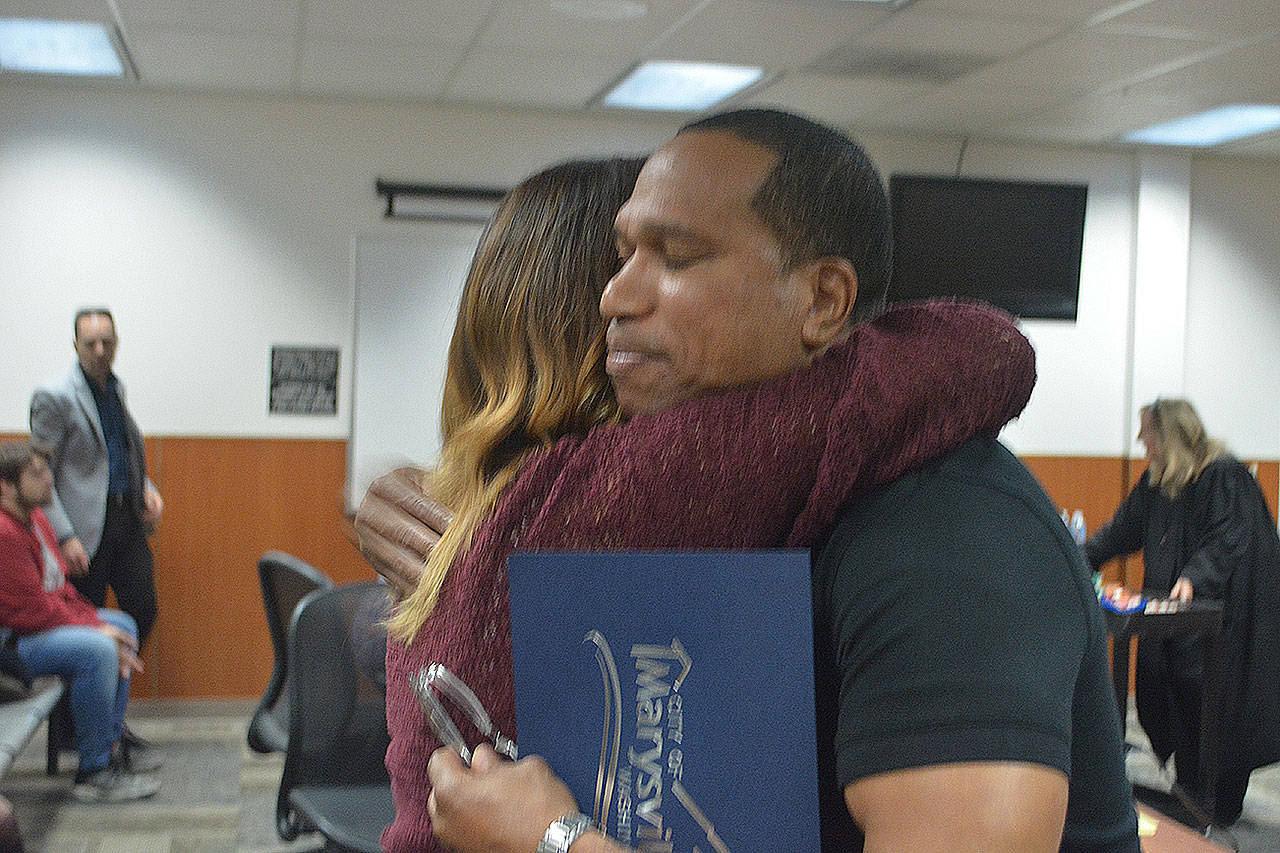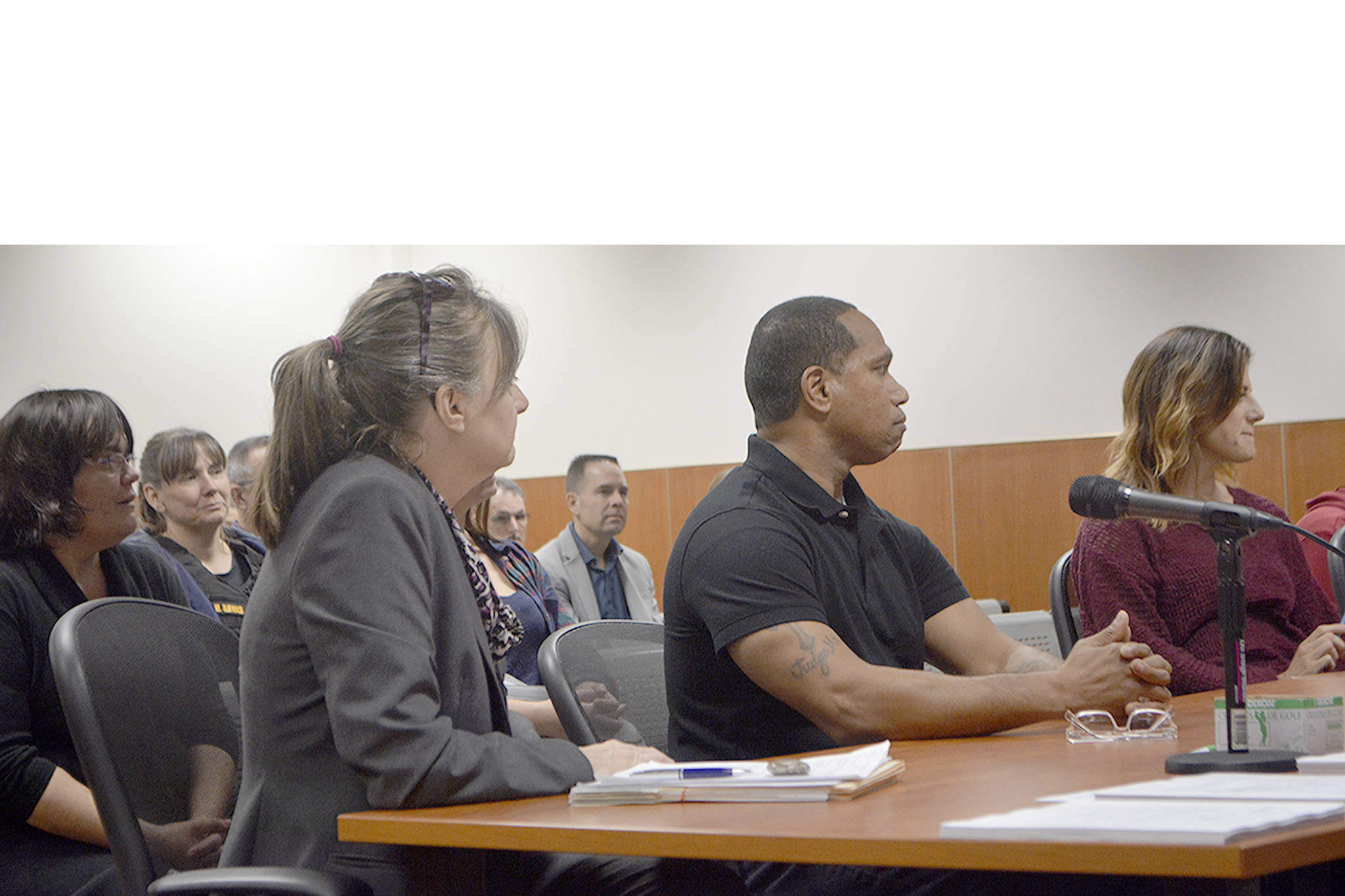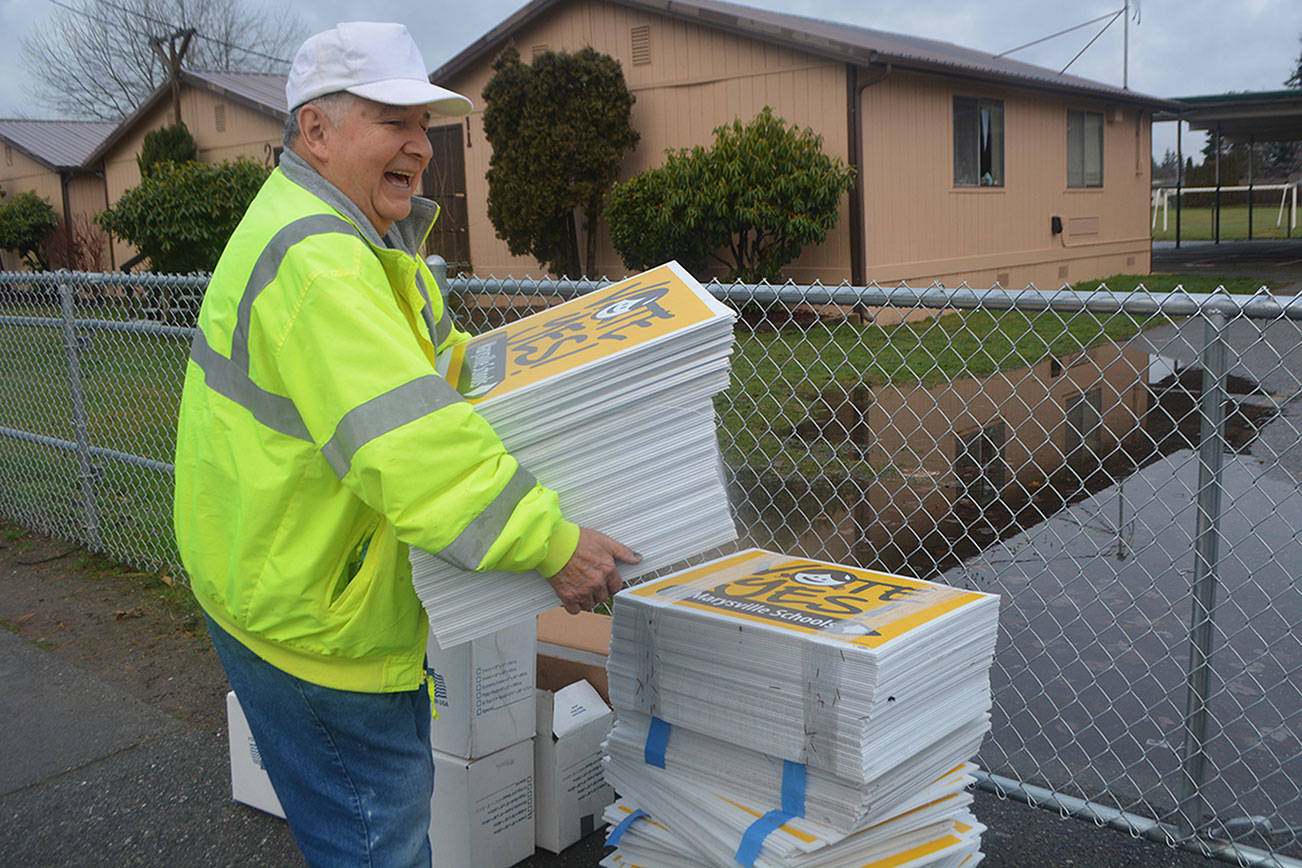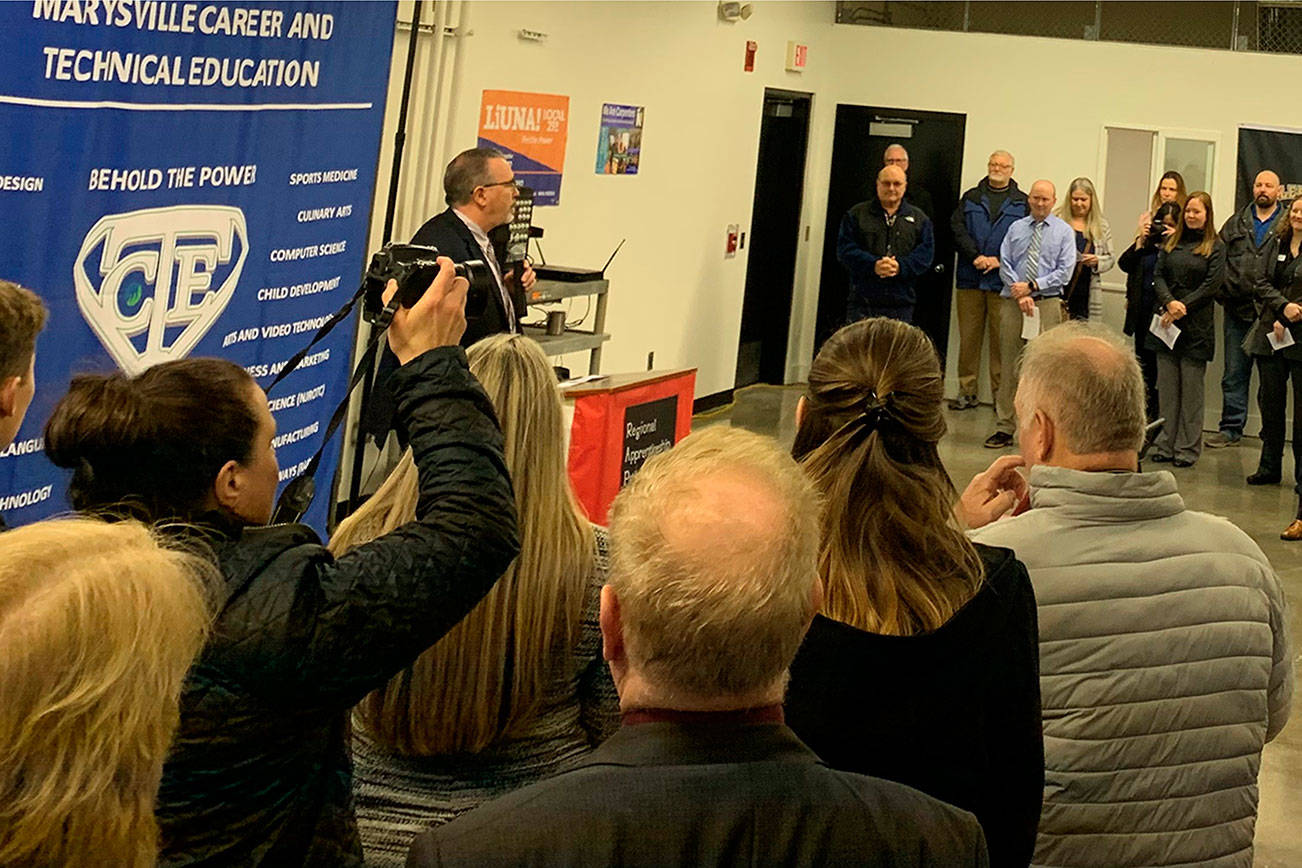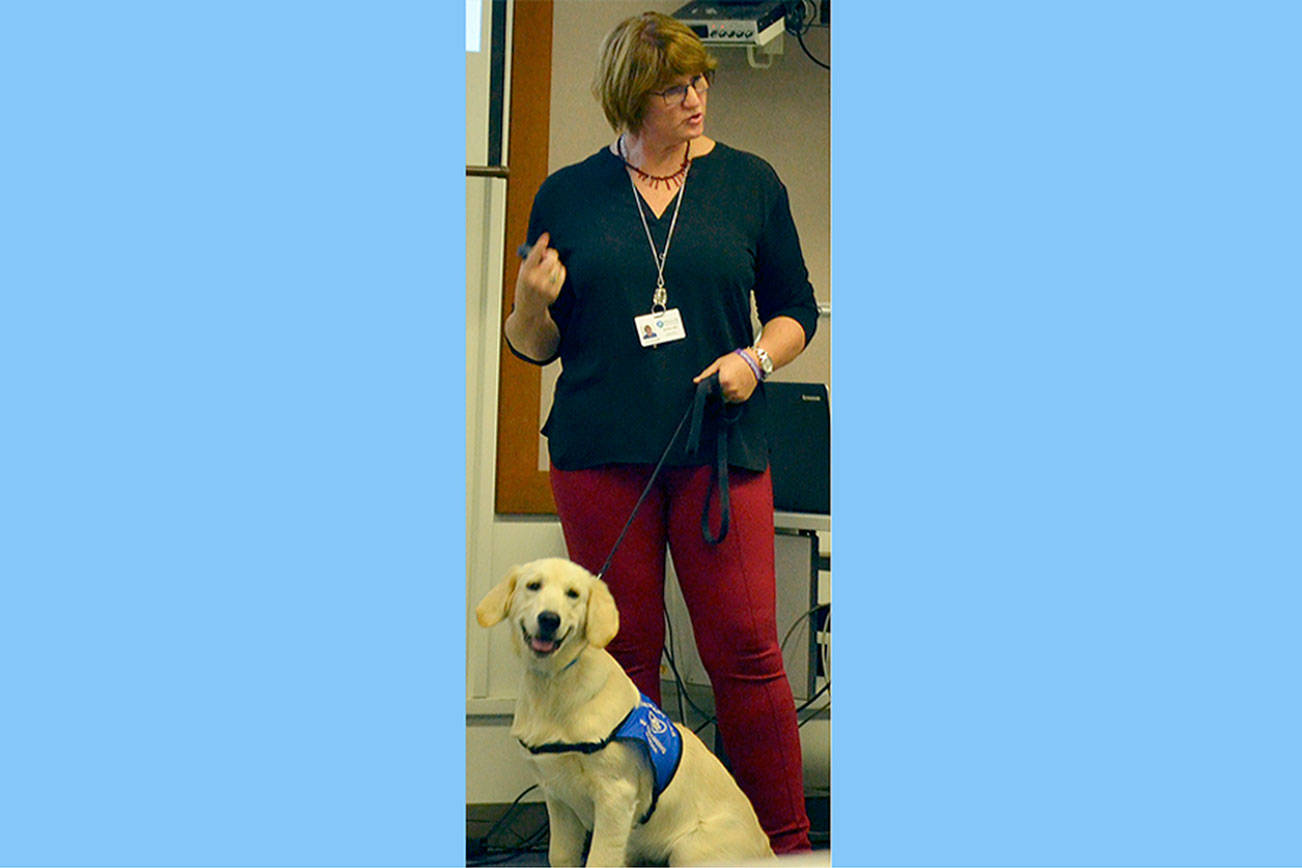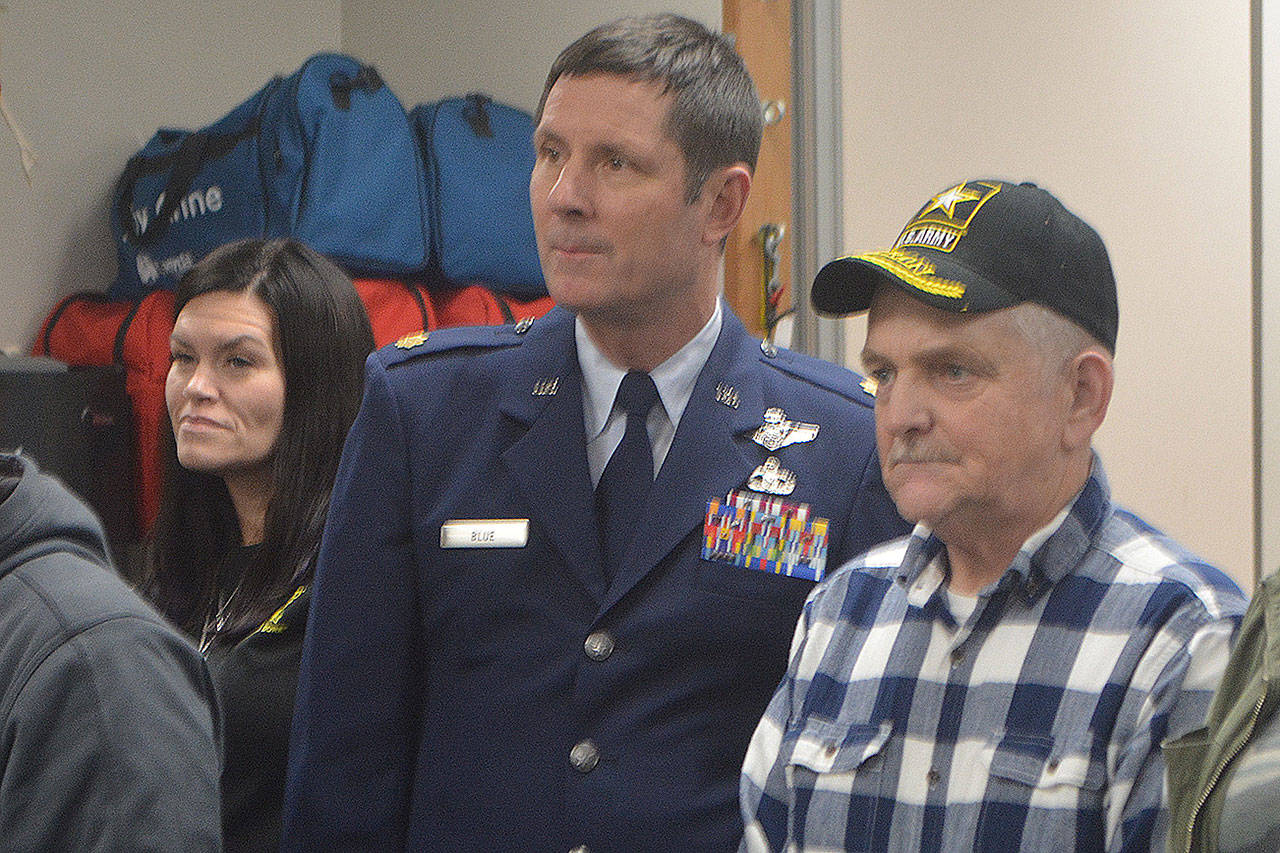MARYSVILLE – For eight years, Cecilio Smith was homeless and off and on used drugs.
But not anymore.
Thanks to the Mental Health Alternatives Program, or MAP, Smith became its first graduate Tuesday out of nine in the program.
It was an early birthday present. He turned 50 Wednesday.
Smith said he did not come from a life of drugs. He was a state champion pole vaulter, and his high school basketball team also went to state.
“I came from success,” he said.
But the loss of some family and friends caused his life to spiral downhill.
“I allowed loss to be an excuse,” he said. “I numbed my body as much as possible.”
But now he realizes loss is “not an excuse to hurt yourself.”
He was in an out of courts, which is one of the requirements for getting into the program. Then one day, he had a “spiritual awakening. Enough was enough. My family was way more important than using.”
He decided to give MAP a chance.
What is MAP?
In April 2018, Marysville Municipal Court began MAP. Marysville decided to address the increasing number of cases where mental health and substance abuse were at the root of criminal conduct. With it, a “court team” of a judge, prosecutor, defense counsel and Bridgeways MAP liaison, oversee and monitor participants. Goals are to stop the “revolving door” of the court system and to address the underlying issues that a traditional justice model is not equipped to do.
Participants are required to have mental health and chemical dependency assessments. They must be approved by the court team and be willing to participate in a structured plan. The MAP team encourages the participant’s progress by using a system of sanctions and/or incentives for accountability. The liaison works with participants to establish goals, assists them with finding resources from housing to other social services, and communicates weekly with participants and their treatment providers.
Graduation
After successfully completing the program, the drug charges against Smith were dropped in court Tuesday. Mayor Jon Nehring attended and said he is inspired by the potential it has to change lives for the better.
“The Mental Health Court is a great resource for us to help those struggling with mental health issues. It fits very well into our overall strategy of offering people the assistance they need to get at the root of the problems they are facing,” he said.
Judge Lorrie Towers said each team member had a stone for him with an inspirational word on it.
Towers picked “Family.” She said one of his main reasons for getting sober was to reconnect with his family.
Smith said later that it wasn’t that hard to reconnect because, “They were always connected to me.”
Defense attorney Tammy McElyen’s stone said “Believe” because he had to believe in himself to accomplish the goal.
Liaison Cathy Wheatcroft of the nonprofit Bridgeways probably spent the most time with Smith. She said they liked to joke around and give each other a hard time. But she picked the word “Faith” on her stone because his belief in a “Higher Power” helped him make the transformation.
Marysville prosecutor Jennifer Millet chose the word “Courage.” It took courage and conviction to get through the program, and it will take that to continue on. Millet said Smith was the perfect candidate for the program because he was happy about turning his life around.
“This is why we’re doing this” program, she said.
Jeffrey Leeper, an Arlington prosecutor, picked the word “Path” because Smith went down a difficult path to succeed.
Smith chose to keep the stone that said “Family.”
“My family is my rock,” he said. He thanked those in the program for holding him accountable, and “empowering me to be the man I always wanted to be.”
Later, outside the courthouse taking pictures with his family, Smith said he hopes to be an inspiration to others with his success story.
He also said a book by country music star Tim McGraw called “Grit and Grace” reminds him of his journey.
“The grit to hang in there, and the ability to give and receive grace,” he said.
—————
Funding ends
Due to funding changes with Medicaid, MAP liaison monies will end Dec. 31.
That will eliminate the liaison position vital to the program’s success.
Bridgeways is seeking funding alternatives, including community donations, until a permanent source of funding can be found. For details call Leila Hill at Bridgeways at 425-513-8213, ext. 140.
